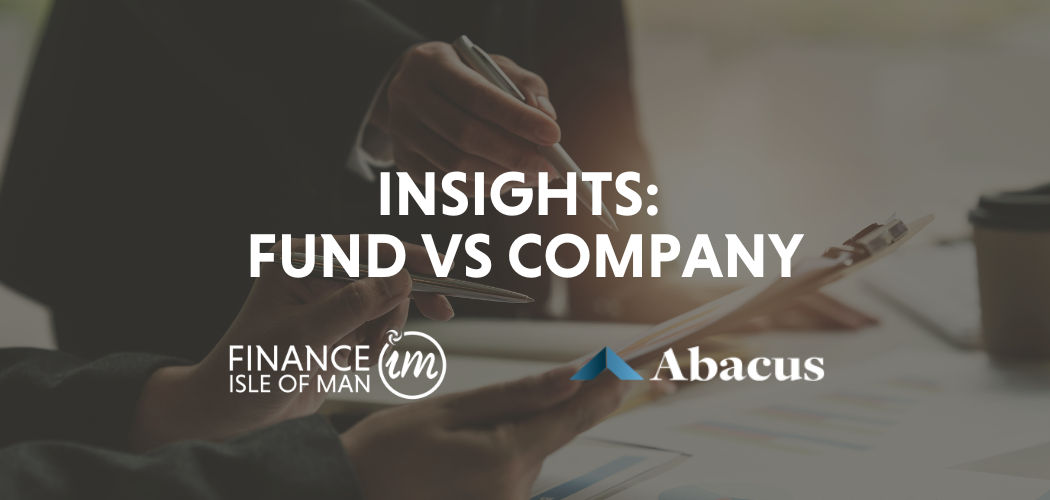Insights: Fund vs Company?
11 November 2024

Written by Abacus Trust Group
Deciding to set up a fund instead of a company depends on various factors such as objectives, the nature of the business, the assets being managed, the long-term strategy together with investor needs and preferences.
We asked our client-service team to outline some of the key advantages of establishing a fund over a company:
Investment structure & flexibility
- Pooling of capital: A fund creates a pool of capital from multiple investors which can then be managed collectively. This is ideal for situations where there is a need to combine resources to access a specific asset class such as stocks and shares, commercial property or private equity to achieve greater results.
- Diverse asset management: Funds provide a structured way to manage a diversified portfolio of investments. Unlike a company that typically focuses on a specific business activity, a fund can invest in a wide range of assets, offering flexibility in investment strategies.
- Unitising assets: Funds take diverse assets and translate them into units which can be distributed according to investment size with returns easily apportioned via units held.
Risk management & liability
- Limited liability for investors: In a fund investors typically have limited liability, meaning their risk is confined to the amount they have invested. This is particularly attractive for investors looking to participate in potentially high-return opportunities.
- Risk spread: Funds can spread investment risk and reduce volatility by investing in a wider spread than an individual investor can achieve.
- Risk segregation: A fund structure often allows for better segregation of risk across different investment strategies or asset classes, compared to a single corporate entity.
Scalability & growth
- Easier to raise capital: Funds are designed to continuously raise and manage capital from multiple investors. This can make it easier to scale investments quickly compared to a traditional company.
- Expansion opportunities: Funds can easily expand into new strategies or asset classes without needing to create a new entity for each, offering a streamlined approach to growth.
Tax efficiency
- In the Isle of Man, a corporate fund vehicle will automatically benefit from a zero rate of corporation tax without having to apply for an exemption, as will its Island-based fund manager and administrators.
- The Isle of Man does not withhold tax on dividends paid to non-resident investors nor will they pay capital gains tax on any profit on disposal. Investors may, however, be subject to tax on their dividends and capital gains under the laws of their home jurisdiction.
- Fees charged by Isle of Man fund managers/administrators and fund investment managers in respect of Isle of Man funds (other than exempt schemes) are not subject to VAT.
Regulatory & compliance considerations
- Regulatory framework: Abacus Financial Services is regulated by The Isle of Man Financial Services Authority.
- Investor confidence: An appropriate fund structure can offer greater transparency and protection, which can be reassuring to potential investors.
- Good governance: A fund should operate in the interests of investors. Appropriate governance frameworks can ensure investors interests are paramount and investment activities are effectively overseen.
Investor relations & reporting
- Regular reporting: Funds typically provide regular reporting and disclosures to investors, which can be more detailed and frequent compared to what a company might offer - a level of transparency attractive to investors.
- Alignment of interests: Fund investment managers are often incentivised based on performance (eg management fees or carried interest), aligning their interests more closely with those of the investors.
- Professional shareholder services: When investing into an appropriately managed fund, investors can expect that their onboarding, investment experience and ultimate exit from a fund is handled professionally.
When a company might be more suitable
- Operational focus: If the primary goal is to run a business producing goods or services, a company structure might be more appropriate.
- Control: If you prefer to maintain tight control over the business operations without the need for external investors, a company setup may offer more straightforward governance.
- Limited need for pooled capital: If raising capital from multiple investors isn’t necessary for your business, setting up a fund might be unnecessarily complex.





